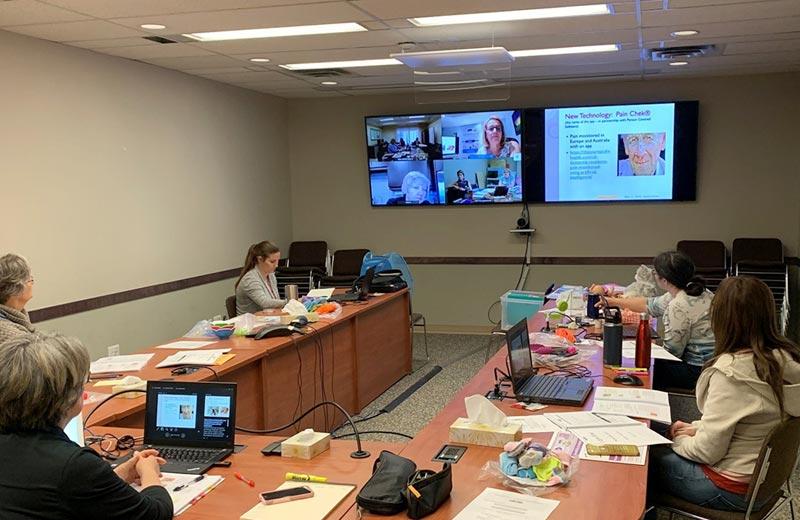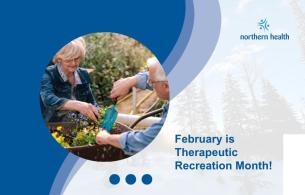On June 2, 2020, Northern Health (NH) launched a three-day DementiAbility Methods workshop to certify 11 new instructors to provide expertise, mentoring, and follow-up with local long-term care homes, programs, and staff throughout the organization. The aim is to enhance the physical, social, and cognitive environment people with dementia live in so that they can experience each day with meaning, purpose, joy, and dignity.
The workshop was run by Gail Elliot a Gerontologist and Dementia Specialist, as well as the founder and CEO of DementiAbility; Marcia Bertschi, a Northern Health Quality Improvement Advisor; and Brenda Miller, a Northern Health Regional Educator.
What is Dementia?
Dementia describes a group of symptoms affecting memory, thinking, and social abilities severely enough to interfere with daily life. This requires health care professionals to acquire special training to ensure that people who live with dementia receive the tailored care they need.
“Often, people think of loss when they think of Dementia,” says Gail. “My goal is to change the way people think about Dementia, with a focus on exposing abilities – and combating disuse – thus, the term ‘DementiAbility.’”
What is DementiAbility?
DementiAbility is a person-centered approach to care that discovers important details about the person – their past and present. These facts, along with current observations, help caregivers adopt unique care approaches and strategies, which can improve the quality of life for the person living with dementia. One goal of the model is to create an environment where people want to live, work, and visit.
“We look at the current capabilities of a person with dementia and aim to set up the environment so they can function as best as they can,” says Brenda. “Examples of facilitating independence includes the use of signage to find places and things; staff knowing how to provide memory ‘cues,’ which supports a residents in doing a task; and that bathrooms, bedrooms, and activity spaces are set up to help the resident be successful in their daily lives.”
The DementiAbility environment includes:
- Supporting the person to be independent as long as possible.
- Focusing on the person’s retained (preserved) skills and abilities (such as the ability to read).
- Addressing boredom, loneliness, and isolation by providing things to do that add meaning, purpose, and human connection each day.
- Setting the person with dementia up for success with the goal of enriching lives by enhancing function and engaging individuals in all aspects of life.
What’s next for DementiAbility at Northern Health?
The 11 new DementiAblity instructors will now train other health care staff who work in long-term care homes, assisted living homes, and adult day centers to prepare and create unique dementia care environments that are set up for success, with a familiar look and feel of home.
"This certification is very important,” says Brenda. “It will provide us qualified instructors throughout NH. This way, we’re able to provide local training to staff in a more meaningful, practical, and cost effective manner.”
Residents and families are unique at each care home and program, and with locally trained instructors they can continue to positively support the unique culture and relationships that exist.
DementiAbility is one of the models of care that helps enable Northern Health’s person- and family-centred care focus. Person- and family-centred care is an approach to the planning, delivery, and evaluation of health services that is grounded in mutually beneficial partnerships among health care providers, patients/clients, and families. It redefines the relationships in health care and leads to better health outcomes, wiser allocation of resources, and greater individual and family satisfaction.
“Northern Health has done tremendous work,” says Gail. “One of the keys to their success is how they have strategically laid out and coordinated a strategy that includes all areas of NH, with a goal of ensuring that each site has equal access to this education. This visionary perspective has been a fundamental element in creating not only a change in culture, but a sustainable change in practise.”














Comments